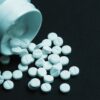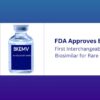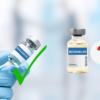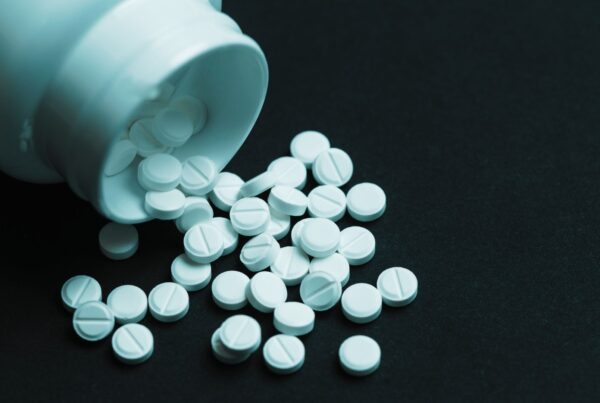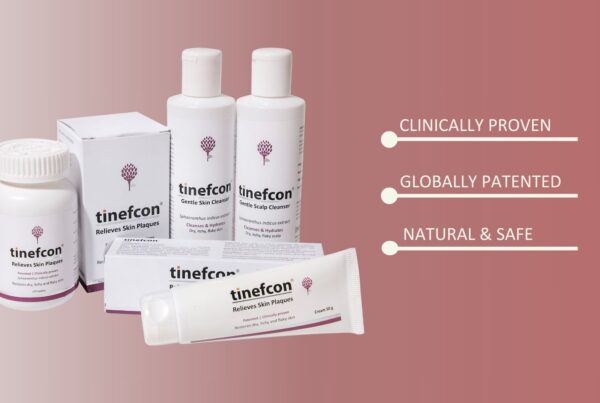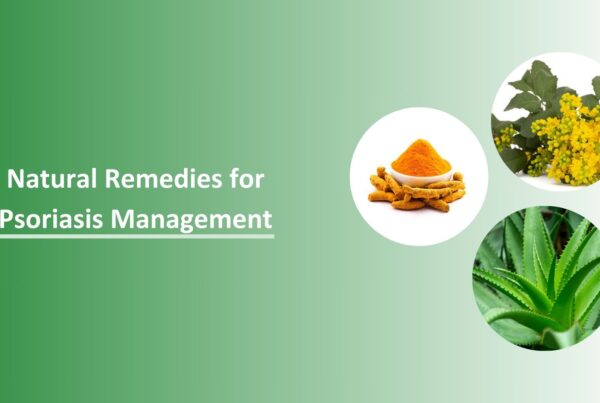Introduction
Biosimilars, a category of biological medical products, closely emulate original reference biologic drugs, ensuring comparable safety, purity, and potency without clinically significant differences. Unlike generic drugs, which are exact copies of small-molecule chemical drugs, biosimilars cannot replicate their reference biologics precisely due to inherent biological complexity and variability.
The manufacturing process may introduce minor distinctions, necessitating a rigorous approval process by regulatory bodies such as the FDA. This entails comprehensive analytical, nonclinical, and clinical studies to establish similarity to the reference product. While approved as highly similar, biosimilars are not exact replicas due to natural variability and complex manufacturing, meeting stringent criteria for similarity.
In India, the adoption of biosimilars has gained momentum, with significant contributions to healthcare accessibility and affordability, backed by robust regulatory frameworks and growing market acceptance.
Biosimilar Utilization in India
The utilization of biosimilars in India has experienced notable expansion over recent years. As per available data, by 2020, the utilization of biosimilars in the UK reached an impressive uptake rate of 95.3%, contrasting with a more modest uptake of 15.8% in the USA.
Moreover, India witnessed a remarkable 2.45-fold surge in Infliximab consumption from the first quarter of 2010 to the fourth quarter of 2020. In 2015, the Indian biosimilar market reached a valuation of around US$300 million, experiencing a strong compound annual growth rate (CAGR) of 14%.
Advantages of opting for biosimilars over biologic
- Cost Efficiency: Biosimilars provide a cost-effective treatment alternative to biologics. Developing biosimilars is less costly than creating new biologic drugs, resulting in lower prices and decreased healthcare expenses for patients, payers, and healthcare systems. This makes biosimilars a financially viable option for both patients and healthcare systems, reducing drug acquisition costs.
- Difference: Although biosimilars do not mirror the reference biologic precisely, they exhibit significant similarity in structure, function, and effectiveness. Rigorous testing meticulously assesses variances between biosimilars and biologics, guaranteeing comparable clinical results from biosimilars.
- Enhanced Accessibility: Biosimilars broaden the spectrum of available treatment choices for patients, thus improving access to biologic therapies and overall healthcare outcomes.
- Assured Quality and Safety: Regulatory bodies, such as the FDA, subject biosimilars to stringent evaluation to ensure their safety and efficacy match those of the original biologics. Patients can therefore expect biosimilars to deliver the same level of treatment benefits with regards to safety and effectiveness.
- Diversified Treatment Options: Biosimilars expand the array of therapeutic choices available to patients suffering from chronic and severe conditions, encompassing ailments like inflammatory diseases, diabetes, arthritis, and cancer. This diversification in treatment options offers patients greater flexibility in their treatment plans, potentially enhancing overall patient outcomes.
- Market Competition and Price Moderation: The introduction of biosimilars induces competition within the market, prompting manufacturers to lower the prices of biologic products. Consequently, this competition results in reduced costs for both biosimilars and reference biologics, ultimately benefiting patients and healthcare systems.
In essence, the utilization of biosimilars boasts numerous advantages, including cost-effectiveness, heightened accessibility to treatment, market-driven price reductions, assured quality and safety, and a broader spectrum of treatment alternatives for patients across various medical conditions.
Exploring India’s Biosimilar Market
Current Market Dynamics and Growth Trajectory:
The biosimilar sector in India is experiencing remarkable expansion, heralding promising prospects for the future. Here’s an insightful overview of the biosimilar market in India, drawing insights from credible sources:
- Biosimilars command a significant share of the Indian pharmaceutical market, accounting for a substantial $2.2 billion within the total $32 billion Indian pharma sector. Projections indicate this figure could soar to $40 billion by 2030.
- Forecasts predict a staggering CAGR of 22% for the Indian biosimilar industry, propelling it to a monumental USD 12 billion market by 2025. This growth trajectory is propelled by escalating domestic demand, amplified bio investments, and burgeoning opportunities for exports to advanced markets.
Regulatory Landscape for Biosimilars in India
The regulatory landscape governing biosimilars in India is pivotal for ensuring the quality, safety, and efficacy of these biologic products. Here’s an overview of the regulatory environment:
- Approval Process:
- Biosimilars undergo a thorough evaluation by regulatory bodies like the Central Drugs Standard Control Organization (CDSCO). Manufacturers must submit comprehensive applications with detailed data demonstrating biosimilarity to the reference product.
- The CDSCO conducts rigorous assessments to ensure compliance with standards for safety, efficacy, and quality before granting marketing authorization.
- Guidelines:
- In 2012, India implemented the “Guidelines on Similar Biologics: Regulatory Requirements for Marketing Authorization in India,” a collaborative effort between the Central Drugs Standard Control Organisation (CDSCO) and the Department of Biotechnology (DBT). Subsequent amendments were made to these guidelines in 2016.
- These guidelines encompass manufacturing processes, quality assurance, safety, efficacy, and both pre-and post-marketing obligations, ensuring compliance with regulatory standards across the product’s lifecycle.
- Challenges in Ensuring Quality and Safety:
- Stringent regulatory oversight is essential to address concerns regarding the quality of some approved biosimilars. Robust mechanisms are necessary to uphold high standards in the biosimilar market.
- The evolving nature and complexity of biologic molecules pose challenges in ensuring consistency, efficacy, and safety across different batches and products. Regulatory agencies must address these challenges to maintain the integrity of the biosimilar market.
The regulatory framework for biosimilars in India encompasses a stringent approval process, comprehensive guidelines, and efforts to address challenges in maintaining quality and safety. Regulatory agencies play a crucial role in safeguarding public health and upholding standards in the biosimilar market.
Key Market Players:
- India boasts an impressive portfolio of over 95 approved biosimilars domestically, a feat unrivaled by any other nation, underscoring its formidable presence in the biosimilar arena.
- The biosimilar landscape in India is characterized by a multitude of pharmaceutical entities actively involved in the production and distribution of biosimilar products. Prominent players include Intas Biologicals, Biocon, Dr. Reddy’s Laboratories, Zydus Cadila, Reliance Life Sciences, Lupin Pharma, and Wockhardt, among others.
- Regulatory strides have been made in the Indian biosimilar sphere, with collaborative efforts between the Central Drugs Standard Control Organization (CDSCO) and the Department of Biotechnology (DBT) culminating in the formulation of comprehensive guidelines governing similar biologics.
Dynamics Shaping the Biosimilar Market in India
The biosimilar market in India is undergoing significant growth, driven by various market dynamics that are reshaping the industry landscape.
The biosimilar market in India, which was valued at $349 million in 2022, is projected to grow significantly at a compound annual growth rate (CAGR) of 25.2% from 2022 to 2030, reaching $2,108 million by 2030. This market is categorized by product type and indication type.
Here are the key factors fueling the expansion of the biosimilar market:
- Rising Demand for Affordable Healthcare:
Increased demand for cost-effective healthcare solutions is a primary driver of the biosimilar market in India. Biosimilars offer more economical treatment options compared to originator biologics, making them preferable for patients and healthcare providers seeking accessible therapies.
- Patent Expirations and Market Opportunities:
The impending expiration of patents on several biologic drugs creates significant market opportunities for biosimilar manufacturers in India. With patents reaching their expiry, it paves the way for the development and commercialization of biosimilar products, enabling companies to introduce more affordable alternatives.
Impact of Biosimilars on Therapeutic Areas in India
Biosimilars are notably impacting various therapeutic areas in India:
Oncology
- Approved biosimilars of monoclonal antibodies like trastuzumab (Herceptin), bevacizumab (Avastin), and cetuximab (Erbitux) are effectively treating different cancer types in India.
- Indian pharmaceutical firms exhibit a strong commitment to developing biosimilars tailored to oncological treatments, evident from their extensive pipeline in this domain.
Autoimmune Diseases
- Biosimilars of biologics such as adalimumab (Humira) and etanercept (Enbrel) have gained approval for managing autoimmune disorders like rheumatoid arthritis in India.
- These approved biosimilars have notably enhanced treatment accessibility for individuals grappling with autoimmune conditions across the nation.
Diabetes
- Approved biosimilars of insulin glargine (Lantus) are effectively utilized for diabetes management within India.
- The introduction of these biosimilar insulin options has substantially broadened treatment avenues and affordability for diabetes patients nationwide.
Other Therapeutic Areas
- Biosimilars of recombinant proteins like filgrastim (Neupogen) and epoetin alfa (Epogen) are approved for addressing conditions such as neutropenia and anemia in India.
- Biosimilars of interferon beta-1a (Avonex) are approved for managing multiple sclerosis within the country.
In summary, biosimilars are significantly impacting therapeutic landscapes in India, spanning oncology, autoimmune diseases, diabetes, and other areas such as supportive care and neurological disorders. These cost-effective alternatives are substantially enhancing access to essential biologic therapies for patients nationwide.
Government Initiatives to Promote Biosimilar Adoption in India
The Indian government has implemented several initiatives to encourage the adoption of biosimilars in the country’s healthcare landscape:
- Biotechnology Industry Partnership Programme (BIPP):
- Launched by the Department of Biotechnology, the BIPP supports biotech companies engaged in biosimilar development. Through cost-sharing, the government aids in funding research and development endeavors focused on biosimilars, aiming to foster innovation in this sector.
- Promoting Biotechnology Growth:
- The government actively promotes biotechnology growth by establishing biotechnology parks in cities like Hyderabad, Bangalore, and Pune. These parks serve as hubs for research, development, and innovation in various biotech fields, including biosimilars.
- Support from the Department of Biotechnology:
The Department of Biotechnology invites proposals from Indian biotech companies to enhance research and development capacities specifically for biosimilars under the BIPP. This initiative aims to bolster India’s position in the biosimilars market by fostering innovation and technology advancement.
These governmental endeavors aim to facilitate research, development, and adoption of biosimilars, thereby enhancing accessibility to cost-effective biologic therapies in India. The nation has demonstrated significant acceptance and utilization of biosimilars, with over 50 biopharmaceutical products approved for marketing, highlighting India’s leadership in embracing these alternatives.
The Indian government’s proactive approach, particularly through initiatives like the Biotechnology Industry Partnership Programme (BIPP), underscores its commitment to fostering growth and innovation in the biosimilar sector. With the domestic biosimilar market poised to reach $40 billion by 2030 and the global market expanding rapidly, India stands at the forefront of biosimilar adoption and development, supported by regulatory frameworks and active participation from local biopharmaceutical companies.
Challenges and Opportunities
The Indian biosimilar industry confronts a series of notable challenges while concurrently harboring substantial prospects for expansion and advancement:
Challenges:
- High Investment and Development Complexity: The significant investment costs and intricate clinical and developmental requisites for biosimilars pose formidable barriers to market entry, surpassing those encountered in generic small-molecule drug production.
- Regulatory Uncertainty in Emerging Markets: In many emerging markets, the absence of well-defined regulatory guidelines prolongs approval processes, often necessitating redundant clinical studies and exacerbating uncertainty.
- Supply Chain Limitations: Issues about the supply chain and logistics, such as the necessity for robust cold chain infrastructure and cost-effective distribution networks, impede widespread access to biosimilars.
- Procurement Challenges: The procurement of reference products from diverse batches and geographic regions entails substantial expenses, further complicating biosimilar development endeavors.
- Regulatory Harmonization Hurdles: Despite strides, the full harmonization of regulatory guidelines across nations remains elusive, erecting impediments to seamless global market penetration.
- Limited Market Share: Despite India’s inherent strengths, its share in the global biosimilar market remains modest, currently amounting to only 3%.
Opportunities:
- Thriving Ecosystem: India boasts a robust biosimilar ecosystem, with over 100 companies actively engaged in manufacturing and marketing biosimilars, laying a robust foundation for future growth.
- Expanding Global Market: The global biosimilar market is poised for rapid expansion, with projections indicating a value of $46 billion by 2025, showcasing India’s potential to capture a more substantial market share.
- Patent Expiry Opportunities: The impending patent expiries of several biologics present lucrative openings for Indian companies to develop biosimilar counterparts.
- Competitive Advantages: India’s cost competitiveness, burgeoning manufacturing base, intellectual prowess, and well-established marketing and distribution networks confer it with distinct advantages over its counterparts.
- Domestic Demand Surge: The escalating healthcare awareness, augmented purchasing power, and enhanced access to medical services within India augur well for heightened domestic demand for economically viable biosimilars.
- Strategic Partnerships: Collaborative ventures between Indian and global pharmaceutical entities underscore the potential for Indian companies to thrive in regulated markets.
In contrast to the generic pharmaceutical sector, which has historically enjoyed greater success and a more pronounced global footprint, the biosimilar domain in India has yet to reach comparable heights. Despite this, the biosimilar industry presents significant avenues for growth and innovation, leveraging India’s existing strengths and the anticipated expansion of the global biosimilar market.
Enhancing Patient Access With Biosilimars
Biosimilars offer a range of benefits to patients:
- Cost Savings: Biosimilars provide substantial cost savings for both patients and healthcare systems, ensuring that life-saving treatments become more affordable and accessible.
- Increased Access: By offering more economical alternatives to biologic treatments, biosimilars broaden patient access to critical therapies that were previously financially out of reach for many individuals.
- Comparable Effectiveness: Biosimilar drugs are as effective as their biologic counterparts, ensuring that patients receive high-quality treatment at a reduced cost.
- Expanded Treatment Options: With lowered costs and broader market availability of previously exclusive drug formulations, patients can access a wider array of treatment choices, ultimately enhancing their healthcare outcomes.
Conclusion
In summary, India’s pharmaceutical sector is shifting towards increased use of biosimilars, driven by the demand for affordable treatments. Despite regulatory and manufacturing challenges, the biosimilar industry shows promise for growth and innovation. Biosimilars improve patient access to vital therapies, reduce healthcare costs, and broaden treatment options. As awareness grows, biosimilar adoption is expected to rise, fostering a more sustainable healthcare system in India.
Written By
Aswini PriyaMedical Content Writer
Reviewed By
Dr. AnchalMedico Expert
Last Updated
10 May 2024 | 01:20 PM (IST)

